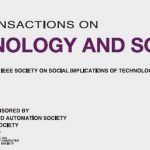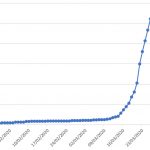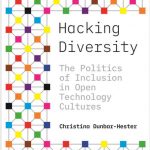Hackathons and other well-intentioned efforts to solve social problems using technology must also include the meaningful participation of affected individuals… Read More



Hackathons and other well-intentioned efforts to solve social problems using technology must also include the meaningful participation of affected individuals… Read More

AI4Eq — Mark your calendars for Wednesday, Oct 27 from 9 AM – 5 PM (EDT)

PIT acknowledges that technological potential can be harnessed to satisfy the needs of civil society. In other words, technology can be seen as a public good that can benefit all, through an open democratic system of governance, with open data initiatives, open technologies, and open systems/ecosystems designed for the collective good, as defined by respective communities that will be utilizing them.

An element of the expansion of digital technologies is a shift in Artificial Intelligence (AI) technology from research laboratories into the hands of anyone with a smartphone. AI powered search, personalization and automation are being deployed across sectors, from education to healthcare, to policing, to finance. Wide AI diffusion is then reshaping the way organizations, communities and individuals’ function. The potentially radical consequences of AI have pushed nation states across the globe to publish strategies on how they seek to shape, drive and leverage the disruptive capabilities offered by AI technologies to bolster their prosperity and security.

IEEE SSIT: Who we are, what we care about, and our history within the IEEE organization.

Systems can be designed using methodologies like value-sensitive design, and operationalized, to produce socio-technical solutions to support or complement policies that address environmental sustainability, social justice, or public health. Such systems are then deployed in order to promote the public interest or enable users to act (individually and at scale) in a way that is in the public interest toward individual and communal empowerment.

Reflective thinking allows humans to examine the past with intentionality, learn from what happened, and adapt accordingly. We explore thoughts, feelings, and actions, mine out insights, and enhance awareness.

Morris’s book is difficult to read, not only because it is written in reverse chronological order, but because he does not understand the technology he is writing about.

The fiercest public health crisis in a century has elicited cooperative courage and sacrifice across the globe. At the same time, the COVID-19 pandemic is producing severe social, economic, political, and ethical divides, within and between nations. It is reshaping how we engage with each other and how we see the world around us. It urges us to think more deeply on many challenging issues—some of which can perhaps offer opportunities if we handle them well. The transcripts that follow speak to the potency and promise of dialogue. They record two in a continuing series of “COVID-19 In Conversations” hosted by Oxford Prospects and Global Development Institute.

Digital discrimination is becoming a serious problem, as more and more decisions are delegated to systems increasingly based on artificial intelligence techniques such as machine learning. Although a significant amount of research has been undertaken from different disciplinary angles to understand this challenge—from computer science to law to sociology— none of these fields have been able to resolve the problem on their own terms. We propose a synergistic approach that allows us to explore bias and discrimination in AI by supplementing technical literature with social, legal, and ethical perspectives.

When we see a built world, we tend to take its permanence and stability for granted. For those who have chosen coastal homes, that built world goes back at least 50 years, with few residents ever realizing that oceans, lakes, and rivers are living entities constantly in motion. The average person relies upon experts such as architects and civil engineers, and supposed guardrails such as state building codes and homeowner associations, to assess safety when purchasing property. But the 21st-century assumption that the built world is stable is a risky bet. Especially in “business-friendly” states.

Just as the “autonomous” in lethal autonomous weapons allows the military to dissemble over responsibility for their effects, there are civilian companies leveraging “AI” to exert control without responsibility.
And so we arrive at “trustworthy AI” because, of course, we are building systems that people should trust and if they don’t it’s their fault, so how can we make them do that, right? Or, we’ve built this amazing “AI” system that can drive your car for you but don’t blame us when it crashes because you should have been paying attention. Or, we built it, sure, but then it learned stuff and it’s not under our control anymore—the world is a complex place.

https://21stcenturywiener.org/ 22-25 July 2021, Chennai, INDIA N R Narayana Murthy to present Opening Speech on 22 July 2021. Infosys co-founder… Read More

Open technology communities are loosely organized, volunteer, online groups, focused on development and distribution of open or free software and hardware. “Hacking Diversity:The Politics of Inclusion in Open Technology Cultures” is a study of the efforts of open technology communities to “hack” the issues around the lack of diversity that pervades not only their volunteer communities, but also their related disciplines at large.

There is huge potential for artificial intelligence (AI) to bring massive benefits to under-served populations, advancing equal access to public services such as health, education, social assistance, or public transportation, AI can also drive inequality, concentrating wealth, resources, and decision-making power in the hands of a few countries, companies, or citizens. Artificial intelligence for equity (AI4Eq) calls upon academics, AI developers, civil society, and government policy-makers to work collaboratively toward a technological transformation that increases the benefits to society, reduces inequality, and aims to leave no one behind.

From the 1970s onward, we started to dream of the leisure society in which, thanks to technological progress and consequent increase in productivity, working hours would be minimized and we would all live in abundance. We all could devote our time almost exclusively to personal relationships, contact with nature, sciences, the arts, playful activities, and so on. Today, this utopia seems more unattainable than it did then. Since the 21st century, we have seen inequalities increasingly accentuated: of the increase in wealth in the United States between 2006 and 2018, adjusted for inflation and population growth, more than 87% went to the richest 10% of the population, and the poorest 50% lost wealth .

Unless we create real boundaries, enforced by legislation, the social media giants will also walk away from the chaos they have enabled.

Understanding the societal trajectory induced by AI, and anticipating its directions so that we might apply it for achieving equity, is a sociological, ethical, legal, cultural, generational, educational, and political problem.

Abstract Since 2016, drones have been deployed in various development projects in sub-Saharan Africa, where trials, tests, and studies have… Read More

Video doorbells and related technologies, along with the data they generate, will continue to be abused, undermining the security of what is being pitched as a security technology.